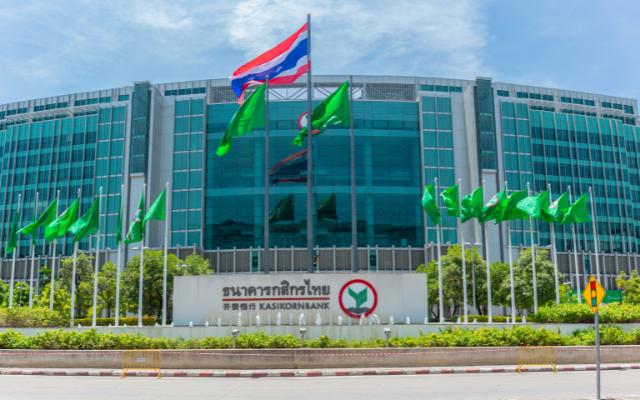
Global Properties
By Property Types
Hot Country

Dreaming of sipping coffee on your own balcony overlooking Bangkok or waking up to the sea breeze in Phuket?
That dream often comes with a big, practical question: How on earth do you pay for it?
The world of Thai bank loans can feel like a locked door for foreigners.
You’ve probably heard it’s impossible, or you’re tangled in confusing online advice.
But take a breath. While it's challenging, getting a foreigner housing loan in Thailand is absolutely possible.
This guide will unlock that door, showing you the exact steps, the right people to talk to, and the secrets to making your property dream a reality.
Yes, foreigners can get housing loans in Thailand, but the options are mostly limited to a few specific international banks and for purchasing foreign-freehold condominiums.
The main lenders for non-residents are UOB, ICBC, and the Singapore branch of Bangkok Bank, each with its own unique terms and conditions.
Be prepared for a significant down payment. You'll typically need to have saved between 30% to 50% of the property’s value.
If traditional bank loans aren’t an option for you, creative alternatives like vendor financing and leveraging equity from your home country exist.
Take Note of These Topics Before Getting a Housing Loan in Thailand!
|

Let's address the big question first. Yes, you really can. But it’s not as simple as in many Western countries.
As many property experts point out, local Thai banks have been historically hesitant to lend to non-Thais.
However, the good news is that the landscape is slowly changing. As Thailand continues to be a top destination for expats and investors, a handful of international banks have stepped in to fill this gap.
The general rule is that these loans are almost exclusively for condominiums.
This is because, under Thai law, foreigners can own a condo unit in their own name (as a freehold property), which gives the bank the security it needs.
Getting a loan to buy a house with land is generally not possible for foreigners, as you cannot legally own land in your own name.
Think of it as a path with specific entry points. If you know where those entry points are, you can navigate it successfully.

Forget walking into just any bank branch.
Only a few key players are known for offering a Thailand condominium loan for non-residents.
It pays to know who they are.
Based on reports from multiple real estate and finance experts, your best bets are UOB, ICBC, and MBK Guarantee.
Here’s a simple comparison to help you understand their differences:
| Lender | Best For | Typical Loan-to-Value (LTV) | Loan Currency | A Key Thing to Know |
| UOB (United Overseas Bank) | Expats and non-residents buying in major cities. | Up to 70% | SGD, USD | Your chosen property must be in Bangkok or another selected prime location. |
| ICBC (Industrial and Commercial Bank of China) | Applicants from Asian markets (though all nationalities can apply). | Up to 70% | SGD | They only finance completed condos (no off-plan) with a value over 2.5 million THB. |
| Bangkok Bank (Singapore Branch) | Buyers willing to apply in person in Singapore. | Up to 70% | Multiple currencies | This was one of the first international home loan schemes available to foreigners. |
| MBK Guarantee | Investors who already own a property in Thailand. | Up to 50% | THB | They are known for being foreigner-friendly as they use your existing property as collateral, making income records less of a focus. |
Source: Expatica, Pulse Real Estate, & Thai Embassy

Okay, so you've targeted a bank.
Now, what do you need to get your application approved?
Think of it like a checklist for financial health.
While each bank has its nuances, they all want to see that you're a reliable borrower.
You'll generally need to be between 21 and 55, ensuring the loan is paid off before you turn 60 or 65.
Having a work permit for a Thai mortgage is a big plus and may get you a higher LTV, but it's not always mandatory, as non-residents can apply too.
Banks need proof that you can make the payments.
The required minimum income varies, but some sources suggest a figure around 80,000 to 140,000 THB per month.
You'll need to show payslips and possibly a letter from your employer.
This is non-negotiable.
As a foreigner, you’re seen as a higher risk.
To offset this, you’ll need a down payment of at least 30%, and in many cases, up to 50% of the property's value.
As mentioned, your loan will almost certainly be for a foreign-freehold condominium registered under the Condominium Act.

What happens if a traditional mortgage doesn't work out?
Don't lose hope. Expats have successfully used other creative financing routes for decades.
The easiest way for a foreigner to get a housing loan in Thailand might not be from a bank at all.
a. Vendor (Developer) Financing
Some property developers offer direct financing to buyers.
i. The Good
The approval process is often more flexible and requires less paperwork than a bank.
ii. The Catch
Interest rates can be higher (4-8%), the loan term is much shorter, and you may be capped at borrowing 50% of the property’s value.
The ownership transfer often only happens after the loan is fully repaid.
b. Financing in Your Home Country
This is a popular option. You can refinance your existing property back home or take out a personal loan and bring the cash into Thailand.
This method gives you the power of a cash buyer.
c. Financing Through a Thai Spouse
This path can seem like a perfect shortcut, but you must walk it with extreme caution.
i. The Advantage
Your Thai spouse can secure a loan from any local bank with better rates and a lower down payment.
ii. The Critical Disadvantage
As heavily emphasized by legal experts and the Thai Embassy, you can act as the guarantor, but you will not have legal ownership of the property.
The title deed is registered solely in your spouse's name.
This poses a significant financial risk if the relationship dissolves.
It's vital to seek legal advice before considering this route.

Feeling a bit overwhelmed? Let's break down the journey into simple, manageable steps.
Get Pre-Qualified: Before you even start property hunting, talk to one of the banks mentioned above. This gives you a realistic budget and shows sellers that you're a serious buyer.
Find Your Dream Condo: Now for the fun part! Work with a real estate agent to find a condo that meets the bank's criteria (i.e., completed, in an approved location, and with available foreign quota).
The Paperwork Safari: It's time to gather your documents. As Pattaya Prestige Properties advises, having everything in order speeds up the process. This includes your passport, visa, proof of income, bank statements, and the property's title deed.
Submit and Wait: Once you submit the formal application, the bank will do its due diligence, including a professional valuation of the property. This can take anywhere from a few weeks to a month.
Sign on the Dotted Line: Approval! You'll review and sign the final mortgage agreement. Always read the fine print, paying close attention to the interest rate, late payment penalties, and any early repayment clauses.
Transfer of Ownership: With your lawyer and a bank representative, you'll go to the local Land Department to register the mortgage and officially transfer the property into your name. Congratulations, you're a homeowner in Thailand!

As the old saying goes, "Forewarned is forearmed."
Getting a housing loan in Thailand as a foreigner is less about luck and more about having the right information, a solid financial footing, and realistic expectations.
The path is narrow, but it is clearly marked for those willing to prepare.
While institutions like UOB and ICBC offer a direct route, don't overlook creative options.
Most importantly, invest in professional advice.
A good property lawyer is worth their weight in gold and will be your best guide on this exciting journey, a point stressed by nearly every expert in the field.
Yes, you can. Banks like UOB and ICBC offer non-resident foreigner condominium loan options, though having a work permit and a Thai-based income can improve your chances and potentially get you better terms.
Generally, no. Banks like ICBC specifically state they only lend on completed projects that already have a title deed. The most likely way to finance an off-plan unit is through developer financing.
If you already own property in Thailand, using a service like MBK Guarantee is often considered the easiest, as it's asset-based. If not, having a very strong financial profile, a large down payment, and applying to UOB or ICBC for a condo in Bangkok is the most straightforward path.
You can only get a bank loan for a property you can legally own, which for a foreigner, is a condominium. Loans for houses and land are not available to foreigners because of foreign ownership restrictions.
No. Government schemes, such as those from the Government Housing Bank (GHB), are exclusively for Thai citizens to help low and middle-income families.
The loan process is easier because your Thai spouse can apply as the primary borrower and get favorable local terms. However, you will only be the guarantor, and the property will be in their name, not yours, which carries significant legal and financial risk.
You should plan for a minimum of 30% of the property’s value, but realistically, saving up to 50% is better. A larger down payment reduces the lender's risk and makes your application much stronger.
It is always advisable to seek guidance from a trusted real estate professional before making a property investment in Thailand. Enquire with our professional team today to get a deep insight!
Reference and Citation